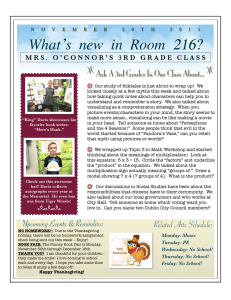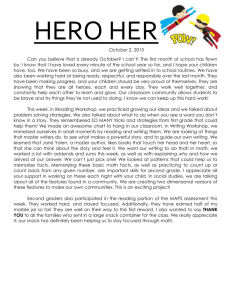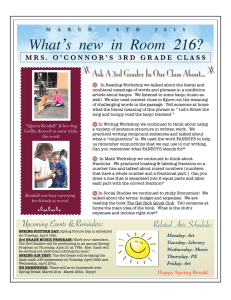Preferred outcomes – children’s views
advertisement
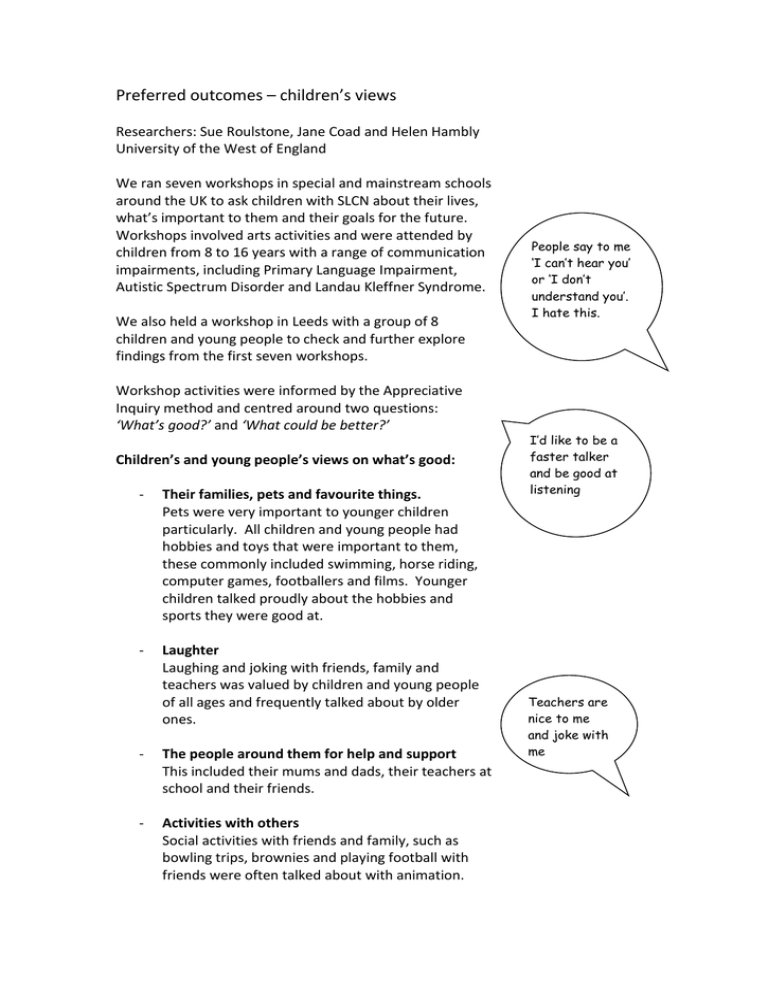
Preferred outcomes – children’s views Researchers: Sue Roulstone, Jane Coad and Helen Hambly University of the West of England We ran seven workshops in special and mainstream schools around the UK to ask children with SLCN about their lives, what’s important to them and their goals for the future. Workshops involved arts activities and were attended by children from 8 to 16 years with a range of communication impairments, including Primary Language Impairment, Autistic Spectrum Disorder and Landau Kleffner Syndrome. We also held a workshop in Leeds with a group of 8 children and young people to check and further explore findings from the first seven workshops. Workshop activities were informed by the Appreciative Inquiry method and centred around two questions: ‘What’s good?’ and ‘What could be better?’ Children’s and young people’s views on what’s good: - Their families, pets and favourite things. Pets were very important to younger children particularly. All children and young people had hobbies and toys that were important to them, these commonly included swimming, horse riding, computer games, footballers and films. Younger children talked proudly about the hobbies and sports they were good at. - Laughter Laughing and joking with friends, family and teachers was valued by children and young people of all ages and frequently talked about by older ones. - The people around them for help and support This included their mums and dads, their teachers at school and their friends. - Activities with others Social activities with friends and family, such as bowling trips, brownies and playing football with friends were often talked about with animation. People say to me ‘I can’t hear you’ or ‘I don’t understand you’. I hate this. I’d like to be a faster talker and be good at listening Teachers are nice to me and joke with me Children’s and young people’s views on what could be better: - Other people Children and young people talked about family members and teachers interrupting them, shouting at them as if they can’t hear, not listening to them and not understanding them. They also talked about friends and siblings teasing them. They felt very little control over these. - Feeling angry Older children and young people talked a lot about how angry they felt, both towards other people for reasons mentioned above and frustration or anger towards themselves. - Their talking and listening and their school work Younger children talked about how they would like to be better at different aspects of their talking and listening, such as talking faster, getting words out and not interrupting. Older children and young people tended to talk more about how they would like to be better at exams or reading or specific school subjects. When asked about their targets set down by their teachers at school, children and young people did not seem to be interested in meeting them and sometimes did not know what they were. - Making friends Several children and young people talked about the difficulties they had with their friendships. They talked about how they would like to make and keep friends more easily and some of the tensions they felt when teased by friends. Children’s and young people’s hopes for the future: Young children spoke very little about the future, although two ten year olds voiced their apprehensive about going to secondary school. Older children and young people talked about their individual aspirations, such as working with horses, being an architect, playing football, joining a rugby team and doing well in maths and science. I’d like to stop arguing with my friends. I am not good at talking. I get frustrated and angry. Teachers don’t do anything – they say ‘oh dear’. When asked what they would like for children like them in the future, they commonly requested more teachers and bigger schools. Next Steps… We have developed a questionnaire to explore children’s and young people’s views on a larger scale. If you would like your child to complete this questionnaire, contact Helen@speech-therapy.org.uk My Mum and Dad helped me a lot and then words came into my head
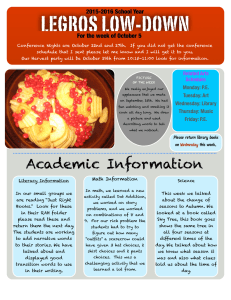
![Oral Presentation: Structure[1]](http://s3.studylib.net/store/data/007247236_1-34a6e756a1f0b2fa782e92987ee4471f-300x300.png)
